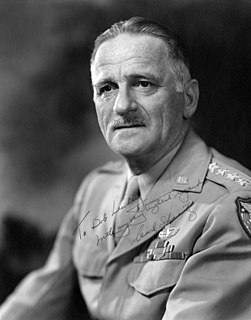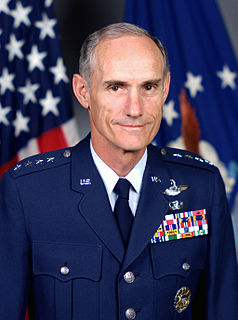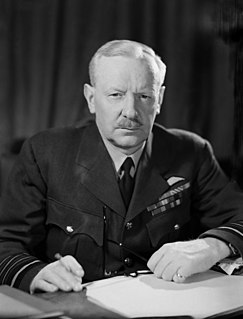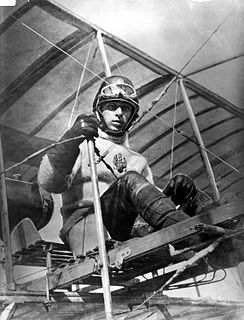A Quote by Carl Andrew Spaatz
The first and absolute requirement of strategic air power in this war was control of the air in order to carry out sustained operations without prohibitive losses.
Related Quotes
Victory, speedy and complete, awaits the side which first employs air power as it should be employed. Germany, entangled in the meshes of vast land campaigns, cannot now disengage her air power for a strategically proper application. She missed victory through air power by a hair's breadth in 1940. . . . We ourselves are now at the crossroads.
When the United States first went into Afghanistan in 2001, it devastated the Taliban and Al Qaeda in a matter of weeks using only a few hundred C.I.A. and Special Operations personnel, backed by American air power. Later, when the United States transitioned to conventional Pentagon stability operations, this success was reversed.
When you have a script where we say we are just going to do air operations alone within the territory of Iraq, what happens is the forces then that we want to target will move their forces, colocate with hospitals, schools, embed themselves to be very, very difficult to conduct air operations against.
Using overwhelming air power to utterly and completely destroy ISIS. To put things in perspective, in the first Persian Gulf War, we launched roughly 1,100 air attacks a day. We carpet bombed them for 36 days, saturation bombing, after which our troops went in and in a day and a half mopped up what was left of the Iraqi army.































